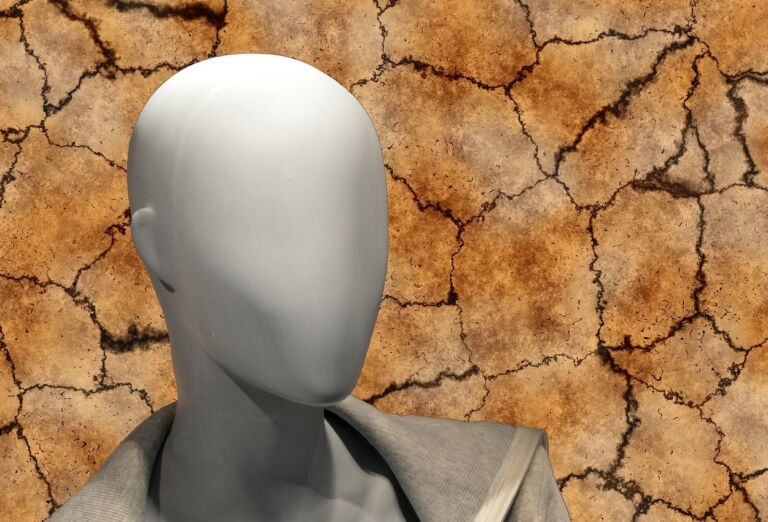Image source: Screen shot of a young student’s art as seen in the #MaskLikeAKid music video, “The Mask Will Come Off … Tomorrow?” Most of North Carolina’s school boards still continue to inflict abuse and harm on our little ones by forcing them in face masks. It’s a terrible failed policy that also flies in the face of science. A brave and compassionate few — including boards in Gaston, Union, and Lincoln counties — have resisted panicked adults and not forced masking.
This past week 96.8% of people in NC were estimated to pose no threat of passing along COVID-19 to anyone. Nevertheless, 24 out of 25 (96.1%) adult North Carolinians — and 93.7% of all North Carolinians — are estimated to have either been at least partially vaccinated or acquired natural immunity against Covid-19 or both.
Here is the NC Threat-Free Index for the week ending January 24. All of the statistics generated for the NC Threat-Free Index are based on numbers provided by government sources. This link gives a detailed explanation of how each statistic is derived.
- As of January 24, there were nearly two million (1,926,579) North Carolinians presumed to be recovered from Covid-19.
- Active cases comprised 15.0% of NC’s total case count. A case of Covid-19 isn’t a permanent infection. Only someone with an active case of the virus can conceivably transmit it to you. The total case count given banner headlines comprises active cases, the very large proportion of people who have recovered, and the very small proportion of people who have died with Covid-19.
- Active cases represented 3.2% of NC’s population. Active cases are lab-confirmed cases of Covid-19 minus recoveries and deaths.
- Also, over 5 out of every 6 (84.1%) of NC’s total cases were recovered. People who have recovered from Covid-19 are no longer infectious. More importantly, a large and growing body of empirical research (“science and data”) shows that they have acquired persistent, long-lasting, and robust natural immunity to Covid-19 — immunity that is stronger against Covid-19 and its variants than even that enjoyed by those who are fully vaccinated.
- Only 0.19% of people in NC had died with Covid-19. This statistic must be phrased in that manner (“with,” not “from”) because of the lack of clarity over the actual cause of death and because of the research finding as well as DHHS and the CDC admitting that a significant proportion of COVID-19 hospitalizations and deaths were “not related to Covid-19.” A recent investigative report found that 1 in 3 Covid patients at UNC Health and a whopping 60% of Covid patients at WakeMed had gone to the hospital for non-Covid reasons.
- All things considered, 96.8% of people in NC posed no threat of passing along Covid-19 to anyone. This estimate will fluctuate based on relative growth in lab-confirmed cases vs. recoveries.
Herd immunity, post-vaccination infections, and reinfections
For the week ending January 24:
- Now 24 out of 25 (96.1%) adult North Carolinians are estimated to have some protection against Covid-19, whether it’s through vaccination (this group alone is at 74%) or the stronger and more durable natural immunity from prior infection (there are as of this date 146 research studies attesting to the strength of natural immunity) or both. Adults are the ones most at risk of losing their jobs, access to government services, ability to travel, ability to buy groceries, etc., for not being vaccinated even though the ostensible public interest is in immunity.
- Conversely, as of January 24, only about one in 25 (3.9%) adult North Carolinians were estimated to have neither vaccine-induced nor natural immunity.
- Looking at the total population, about 15 out of every 16 (93.7%) North Carolinians are estimated to have some immunity. These estimates are based on DHHS case numbers, CDC estimates of actual infections, DHHS estimates of current vaccinations, and the formula outlined here.
- The most recent update from DHHS found 261,364 post-vaccination infections among 5,903,700 fully vaccinated individuals, and the estimated post-vaccination infection rate for the week ending January 10 was 4.4%. Given how strictly DHHS defines a “post-vaccination infection” — as of now, someone must be at least two weeks past receiving the second of two injections; anyone with only one injection or within two weeks of receiving the second “counts” as an unvaccinated case of Covid — the actual post-vaccination infection rate could be much higher than the estimated rate.
- Also as of the week ending January 10, 39% of Covid-19 cases in North Carolina were to people considered fully vaccinated. That is a very high proportion for something described by Pres. Joe Biden on January 4 as a “pandemic of the unvaccinated.”
- As of the week ending January 10, there had been 42,273 reinfections for those with prior lab-confirmed cases of Covid-19, and the estimated reinfection rate was 2.6%. For reasons discussed here, the actual reinfection rate is likely much lower than the estimated rate.


